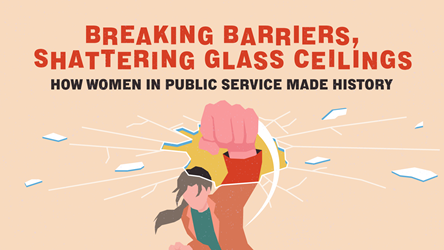Being a Great Partner

We all partner. We partner peers, customers, suppliers; even bosses and subordinates. But how good are we at partnering? Good partnering begins with our skills in cultivating relationships. But great partnering depends on who we are.
Some examples of flawed partnering:
- Partner A claims all credit for a successful project, resulting in others’ unhappiness and reluctance to continue working.
- Partner B is extremely careful with her intellectual property, unable to trust others, and consequently works alone.
- Partner C acts in a controlling way and micro-manages others, hampering collaboration.
Fear of personal failure makes Partner A try to look successful at the team’s expense. Fear of “losing what is mine” triggers deep possessiveness and distrust in Partner B. Fear of project failure makes Partner C behave in intolerable ways. Such fears are the “devil” within us.
In The Lord of the Rings, pursuit of a great prize (the “One Ring”) brings out insecurity, jealousy, distrust and selfishness. The character Gollum is transformed by obsession with the One Ring and knows only treachery and violence. Uncanny parallels can be found in modern-day business situations. You might identify your own “devil” and see where it rears its ugly head. What makes one partnership a success, another a failure? The key elements are the individuals involved and their motivations.
At the lowest level is fear – most commonly, fear of losing out or being taken advantage of. Such a person finds it difficult and unnatural to trust others, and may avoid partnering altogether. He may act in offensive ways to protect his own interests and finds it easiest to work alone, thus limiting his potential for growth.
Individuals at the middle level are driven by their desires and personal goals – to accumulate wealth, build a business, and work more productively. Desire to achieve outweighs fear, and they are opportunistic and motivated to partner where it serves their interests. They remain conscious of self-interests and partnerships that outlast usefulness break down.
Partners at the highest level are driven by ideals beyond self-interests, to create a larger possibility. They see themselves as integral to a larger whole and are generous because they believe the universe is abundant. They are confident that if they remain true to shared ideals and work towards larger goals, their needs will be taken care of.
Everyone has a predominant level they tend to operate on but people often move up and down the scale in different situations. The framework is an overview of where partnering individuals might be operating from, and helps us reflect on our attitudes and beliefs.

We can repel others when we operate from lower levels of fear, jealousy and pride. Conversely, we attract like-minded people with generous, wise and abundant spirit.
To be a great partner, start with yourself. Ask which level of cultivation youoperate from when partnering:
- In which types of situations have you found yourself operating at the three levels – Fear, Desire and Oneness?
- Which level do you think you operate at in most situations?
- What are your beliefs about building partnerships, and how would they need to change for you to be a great partner?
- What experiments are you willing to try out, to test (and perhaps shift) your beliefs?
Wendy Tan is the founding partner of The Flame Centre (www.flamecentre.com), an organisation development consulting and training practice. She welcomes comments at Wendy_Tan@flamecentre.com.
- POSTED ON
Mar 13, 2012









